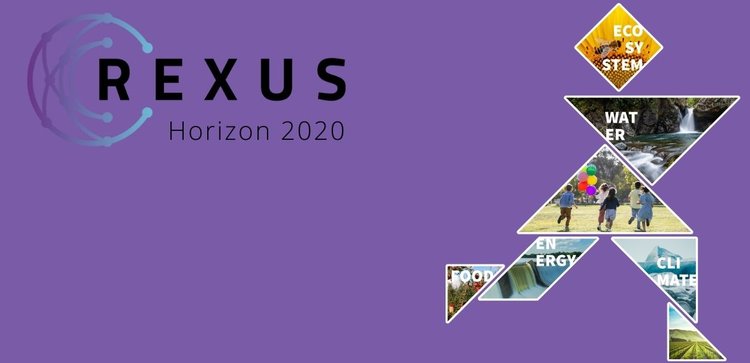The REXUS project, which investigates the relationship between water, energy and food resources, will hold its Second Plenary Meeting, with physical participation of more than 50 researchers at the Albacete Water Interpretation Center (CIAb) from Wednesday 27 to Friday 29 April 2022. REXUS, with five million euros of funding, is coordinated by the University of Castilla La Mancha, Prof. José González Piqueras and Anna Osann from the company Agrisat Iberia.
Watch the REXUS Plenary Meeting VIdeo:
REXUS aims to manage the resilience of a system, such as an aquifer or river basin, and the relationship between water, energy, food and environment known as the Nexus, based on modelling through Participatory System Dynamics. It is a project funded by the European Commission within the Horizon 2020 programme that started in May 2021 and will end in April 2024. Its development involves the participation of users (hydrographic confederations, irrigation associations, water managers, energy managers, etc.) to improve the integrated management of resources in five pilot areas, namely peninsular Spain (with special focus on the Júcar DH), the Isonzo/Soca river (cross-border between Italy and Slovenia), the Lower Danube (area of Romania and Bulgaria), Pinios (Greece) and Nima in the Cauca valley (Colombia). For its development, an observatory is being created that integrates data from the Copernicus satellite program, land use, water footprint, carbon footprint, climate projections and socioeconomic indicators that will be used in the dynamic models to analyze future scenarios of water and energy needs, food security and environmental impact. The project’s objectives also include the study and proposal of nature-based solutions.
The meeting is the first face-to-face meeting of the project, which represents a physical approach between researchers, technicians and users after the restrictions imposed by COVID-19, with the aim of studying the progress in the first year of execution, advancing in the methodological discussions and planning activities in the coming months. About 50 participants from universities such as Cambridge, Padua and the UCLM itself, international research centres, ministerial representatives as the General Direction of Water from MITECO, representatives from the Jucar Hydrographic Confederation, as well as from companies participating in the consortium will be present.

